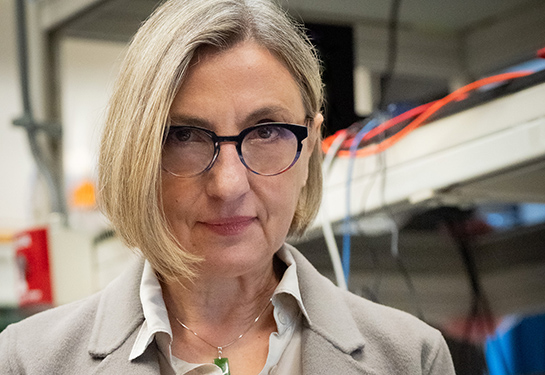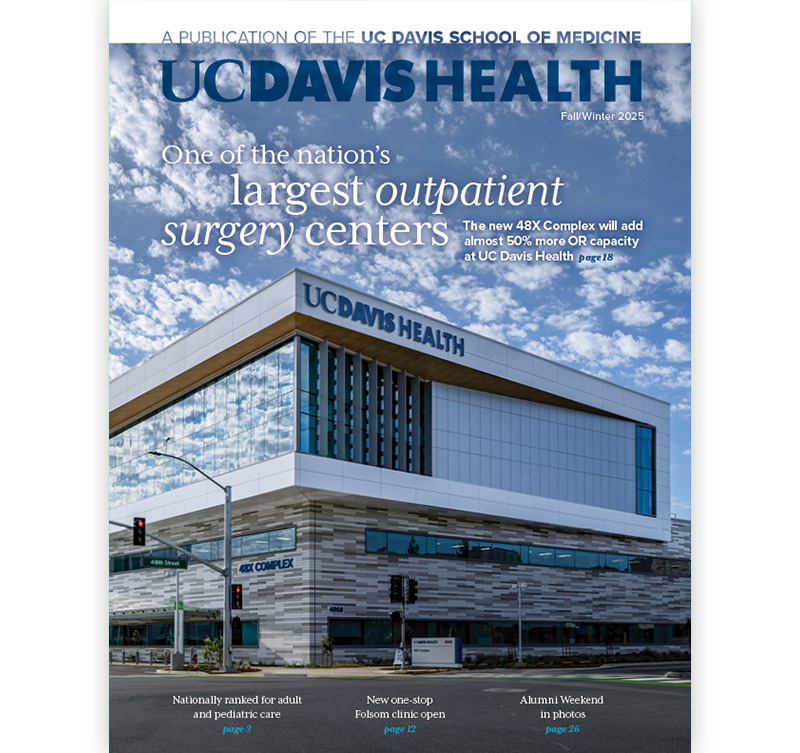NIH grant will allow UC Davis Health to train community health workers in COVID-19 contact tracing
Funding will help the UC Davis Clinical and Translational Science Center and the Center for Reducing Health Disparities reach underserved population during pandemic
UC Davis and two other universities have been awarded a $2.3 million grant from the National Institutes of Health to train and empower community health workers in research best practices, which could help reduce disparities related to the ongoing COVID-19 pandemic.

The grant from the NIH’s National Center for Advancing Translational Sciences is shared by the UC Davis Clinical and Translational Science Center (CTSC) and the Center for Reducing Health Disparities (CRHD), the University of Michigan, and the University of Florida. All three universities do extensive work in promoting health equity among Latinx and Black populations.
The award acknowledges the increasing role that community health workers play in research to engage individuals from underserved communities.
“We have been successfully training community health workers for many years to help diverse populations improve their health, and now we’ll have an opportunity to take that training to the next level, to formally teach the essentials of research to community health workers,” said Sergio Aguilar-Gaxiola, director of the CRHD and also director of the community engagement program of the CTSC.
As with most gatherings nowadays, the training will be held online.
Community health workers, sometimes known as promotoras de salud, are frontline public health workers who are trusted members of the community or have an unusually close understanding of the community they serve; sometimes they are embedded within underserved communities. In recent years, they have taken on a critical role in research for their ability to reduce barriers in translation, particularly in in the area of health disparities.
The grant’s timing allows Spanish-speaking community health workers to be trained in critical research like contact tracing to help slow the spread of COVID-19, Aguilar-Gaxiola said.
Latinos in California are infected with COVID-19 at a rate more than three times higher than whites, according to the California Department of Public Health. Latinos, who are 39% of California’s population, make up 60% of COVID-19 cases. Also, nearly 80% of COVID-19 related deaths in the 35-49 age group are Latinx, while this age group represents 41.5% of the California population. In the same age group, whites represent 7.8% of the deaths and 32.5% of the population.
“This particular grant could not be more timely because of the dire need to have this workforce of promotoras or community health workers to potentially help with contact tracing, which is much needed in hard-to-reach populations,” Aguilar-Gaxiola said. “Promotoras are in the ideal position of using their cultural and linguistic skills to reach their communities and help slow the spread of the disease.”
Grant will develop “champions” among peer mentors
In addition to training community health workers, the grant also seeks to:
- Provide standardized education in research best practices for community health workers
- Reduce barriers to accessibility of competency-based training and tools for training community health workers online
- Empower select community health workers to become training “champions” to serve as peer mentors and facilitate the training of their colleagues at community sites
The principal investigators are Aguilar-Gaxiola; Susan Murphy, an associate professor of physical medicine and rehabilitation at Michigan Medicine and Linda B. Cottler, a dean’s professor of epidemiology and director of community engagement of the University of Florida Clinical and Translational Science Institute.
“This grant will allow us to enable community health workers to better support research within their community,” Murphy said. “This is especially important in underserved communities where quality and translation of clinical research are hampered due to health disparities.”
The three investigators’ institutions will serve as the first training hubs for the program.
UC Davis Health also will work closely with partners that can assist in outreach and recruitment, including the Mexican Consulate in Sacramento, Health Education Council, Rio Vista CARE and other organizations.
Community health workers and community members in California, Michigan and Florida will be engaged in content generation, as well as provide feedback on the training and its implementation.
“Community health workers understand the needs of their community and are an incredibly valuable resource, especially when it comes to engaging their community members in research that could help us reduce health disparities in the future,” Cottler said.





